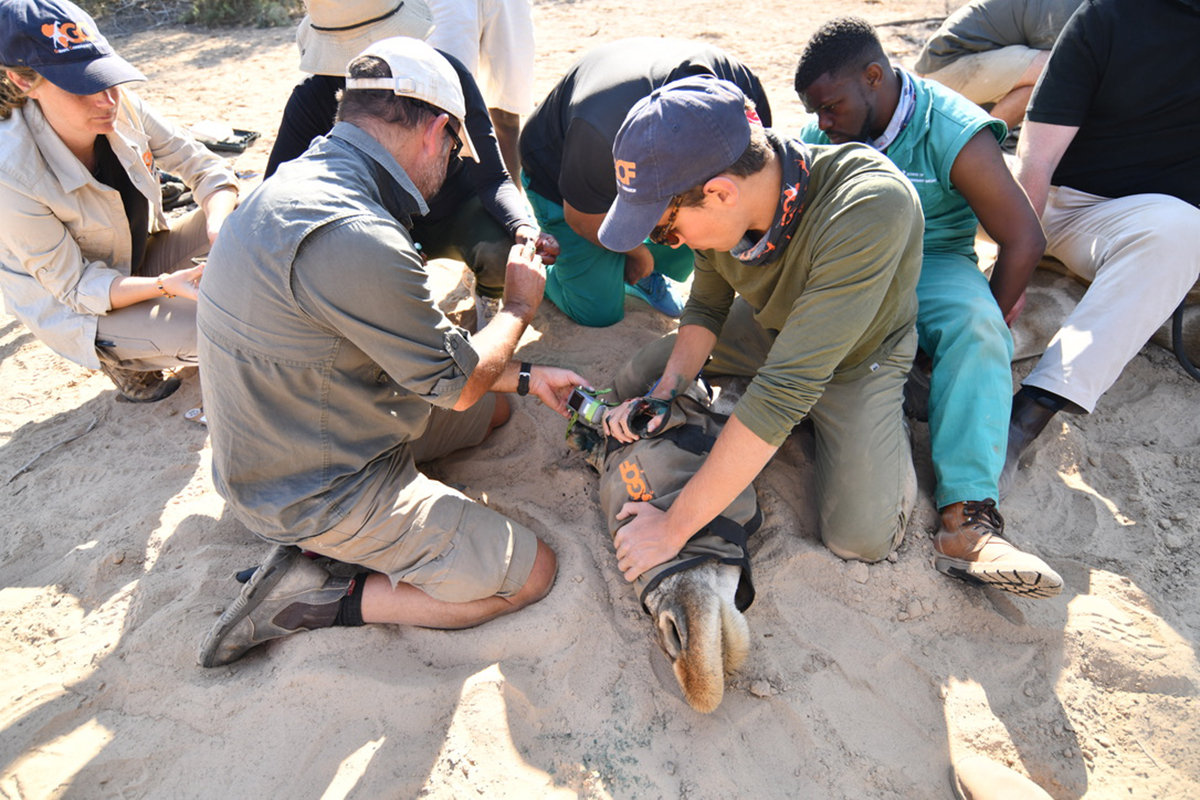I think the most important thing for humans is to think of ourselves as part of nature and recognize and appreciate how our actions have effects we can’t even picture.”
Zander Galli

For as long as he can remember, Zander Galli ’22 has been interested in wildlife and nature. After his lower year, Galli planned a trip to Africa, where he initially thought he’d be working with cheetahs. In fact, he headed to the Munyawana Conservancy in southeastern South Africa for a conservation project involving pangolins, the rare insect eating mammals that are covered in overlapping scales resembling the leaves of an artichoke. “They have this entrancing aura that’s hard to describe if you’re not right next to it,” Galli says. “It’s like stumbling on some otherworldly alien, they’re just so strange and beautiful.”
While often compared to anteaters, pangolins are in fact more closely related to the Carnivora order, which includes cats, dogs and bears. Their unique scales are made of keratin, the same protein that forms human hair and fingernails. Despite having no proven medicinal value, the scales are highly sought after for use in traditional cures for ailments ranging from arthritis to cancer. Due to a robust poaching trade over the past 10 to 15 years, pangolins are now believed to be the most-trafficked mammal in the world.
Though the COVID-19 pandemic scuttled all travel in the summer of 2020, Galli returned to the same conservancy this summer. His job was to help rehabilitate three young pangolins that had been rescued from the poaching trade and reintroduce them into the wild. Pangolins are normally solitary, nocturnal creatures, but these orphaned animals were completely dependent on Galli and his colleagues to dig up ant and termite nests for them to feed on. “At night, you bring them back and sleep right next to them, because you have to keep them warm and make sure they don’t get sick,” Galli says. “It’s very stressful for them.”
In addition to the threat of poaching, “the climate crisis is really affecting the areas that pangolins live, especially the drier areas,” Galli says. “When the rainfall is much lower, the insects are way less prevalent, so the pangolins have to spend more time out of their shelters looking for them.” Not only are the animals exerting more energy and risking starvation, but they’re more easily hunted when they’re in the open. All eight pangolin species native to Asia and Africa are currently classified as threatened with extinction by the International Union for Conservation of Nature.
Galli also spent a month this summer in the Namib Desert in northwest Namibia, working with the Giraffe Conservation Foundation to track and place satellite tags on giraffes. “The foundation used the tagging data to track the giraffe migration between the Namibian and Angolan border and set up community conservation programs,” he explains.
After taking Advanced Biology his upper year, Galli is now working with Science Instructor Townley Chisholm on a senior project to create a new biology curriculum. “It connects natural disruption to zoonotic diseases, like COVID and Ebola and HIV, and explains how the status quo of natural destruction will probably lead to more diseases like those,” he says. Galli hopes to test the curriculum in Exeter biology classrooms before rolling it out to a wider audience.
In addition to his conservation interests, Galli is on the wrestling and crew teams, serves as co-head of the Daniel Webster Debate Society and sits on the Community Conduct Committee. Next spring, he will travel to the nation’s capital for the Washington Intern Program and plans to intern at an environmental law or policy organization.
In a TEDx talk Galli gave at Exeter in the spring of 2019, he advised fellow Exonians to “think of biodiversity as a massive Jenga tower” in which every species is important to the solidity of the tower. He still sees this metaphor as an apt one for illustrating the need to take climate change — as well as the plight of the pangolin and other threatened animals — seriously. “I think the most important thing for humans is to think of ourselves as part of nature and recognize and appreciate how our actions have effects we can’t even picture,” Galli says. “We just don’t know enough about how all these ecosystems function, and how the entire biosphere keeps us alive. We don’t know when that tipping point will be.”
— Sarah Pruitt ’95
Editor’s note: This article first appeared in the fall 2021 issue of The Exeter Bulletin.


